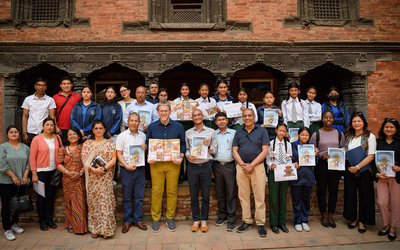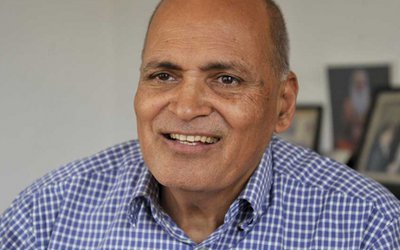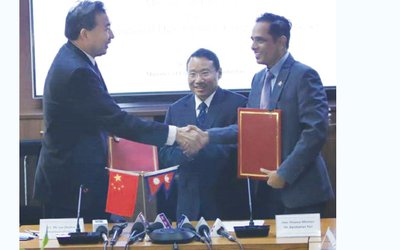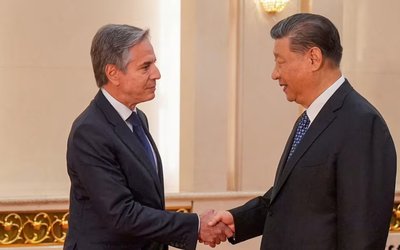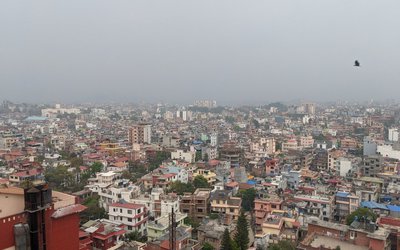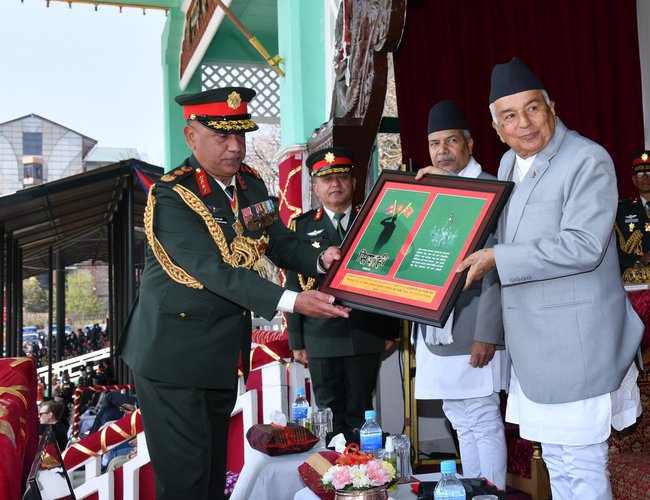
The Nepal Army was founded 261 years ago to unify the Gurkha's ruler. Since then, it has fulfilled all the responsibilities entrusted to it. Initially, the Nepal Army participated in the political unification process.
Over the last five decades, it has taken on the responsibility of building roads to connect different parts of Nepal. Despite challenging terrain in high mountains and middle hills, the Nepal Army has successfully constructed many roads.
Four years ago, the Nepal government handed over the construction of a fast track linking Kathmandu and Nijgadh to the Nepal Army. Despite challenges such as a lack of budget and support from related agencies, including the Ministry of Forest and Environment, the Nepal Army has made remarkable progress in constructing the road.
The Nepali Army celebrated its 261st anniversary on Friday (March 8) with military arts, cultural performances, and musical events across the country.
Nepal's main security force was founded on Shivaratri, the birthday of Lord Shiva, and has inherited the unique character of the region, including Shiva as its symbol.
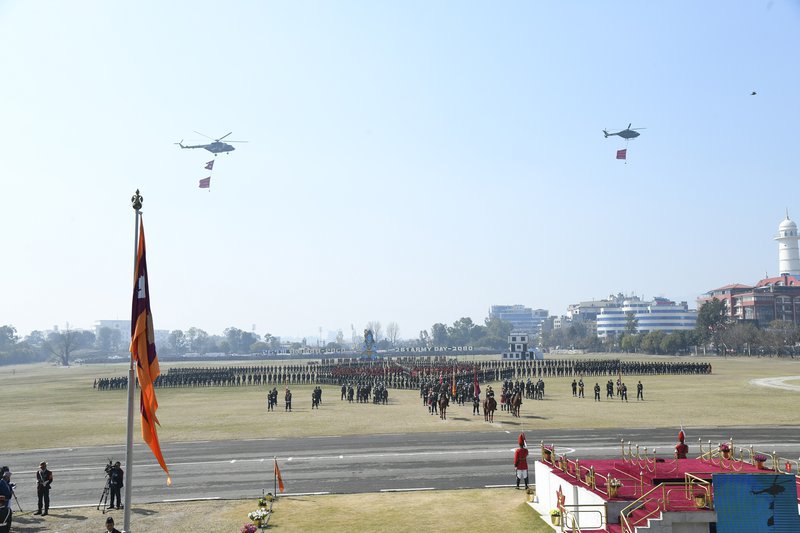
The Army celebrates Mahashivratri as Army Day. On this occasion, various cultural programs, including a parade (army drill) and cannon firing, Kawaz, will be conducted.
According to Krishna Prasad Bhandari, spokesperson of the Nepali Army, there will be a program featuring 300 female and 300 male soldiers performing the endangered thali dance together. The aim is to revive the original Nepali culture and tradition during the Army Day ceremony. During the event, the Nepalese army, along with the armies of India, Britain, and the United States of America, will perform a musical show.
Additionally, various programs will be organized in Pritna, Bahini, Gana, and Gulm under Jangi Adda. The Nepali Army is an organization of disciplined soldiers who are ready to sacrifice their lives in any situation for the protection of freedom, sovereignty, geographical integrity, independence, and national unity. Chief of Army Staff Prabhuram Sharma stated this.
During the organization's foundation day, the speaker reminded the audience that the organization should prioritize the collective over the individual. He emphasized that reputation is more important than position.
The Nepali Army has a history of protecting Nepal's independence, geographical integrity, and sovereignty through exemplary and record-breaking work.
The current army's organizational structure began in 1819. The army has earned the trust and faith of citizens through patriotic and dedicated deeds that prioritize the interests of the common people.
Nepal was founded on the courage, heroism, and sacrifice of military heroes. The army has a constitutional responsibility to maintain national unity. The Nepali Army has a high culture of discipline, chain-of-command, and politics, with a strong sense of unity. It has successfully established itself as a reliable and trustworthy army, both domestically and internationally.
The army has made significant strides in terms of inclusion, with increasing participation of women.
The Nepali Army has received praise from national and international arenas for its significant contribution to establishing peace in various conflict-affected countries around the world. The United Nations has called upon the Nepali Army to participate in peacekeeping missions since 1958, and to date, 150,891 Nepalese peacekeepers have contributed to 44 missions.
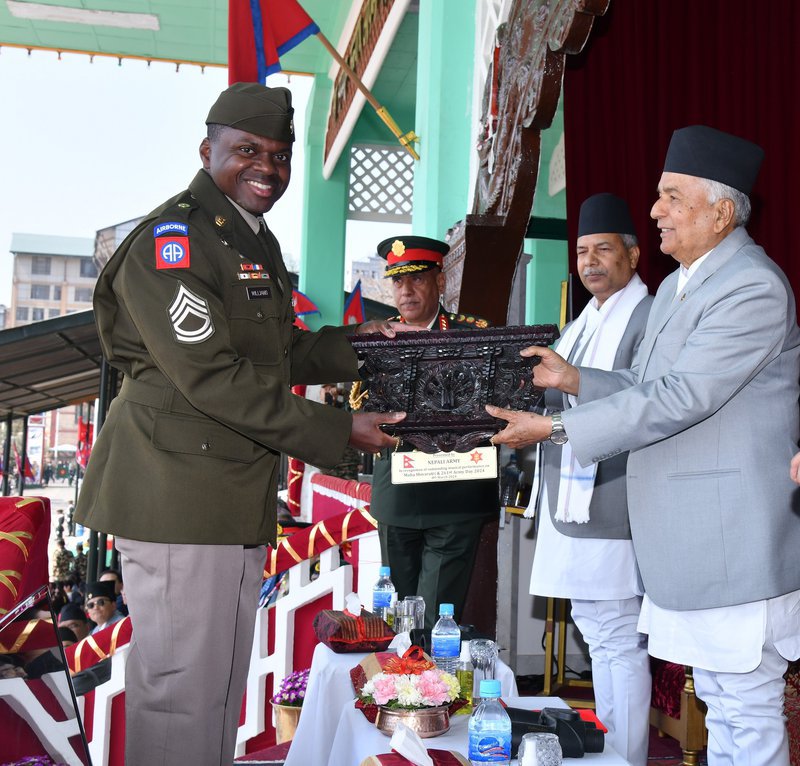
73 Nepalese soldiers have died while serving in conflict-affected countries around the world, with an additional 68 soldiers injured. Currently, there are 5,890 Nepalese peacekeepers, including 662 women, serving in 12 peacekeeping missions globally. Nepal is ranked first among countries that deploy troops for peacekeeping.
Soldiers from several of the world's most powerful countries come to Nepal to improve their professional skills and abilities. They confirm this at the Birendra Peace Training Center, Military Academy at Bhaktapur Kharipati, and Army Command and Staff College at Shivpuri.
The Nepali Army is the preferred peacekeeping force for victims of conflict-affected areas worldwide. The army has made significant contributions to disaster management and the construction of road infrastructure. The Kathmandu-Tarai Madhes highway, a source of national pride, is managed by the army.
Bhandari, the spokesperson of the Nepalese Army, is strengthening the relationship with soldiers and citizens by taking responsibility for protecting palaces, forts, museums, structures of historical importance, powerhouses, physical infrastructure, and natural resources. Additionally, they are working on mountain cleaning and development.
Fast Track Progress
Nepal Army is working to complete the shortest road connecting Kathmandu by 2026. Deputy Prime Minister and Minister for Defense, Purna Bahadur Khadka, emphasized the need for support and cooperation from all quarters to complete the Kathmandu-Tarai/Madhesh Fast Track Project within the stipulated timeline.
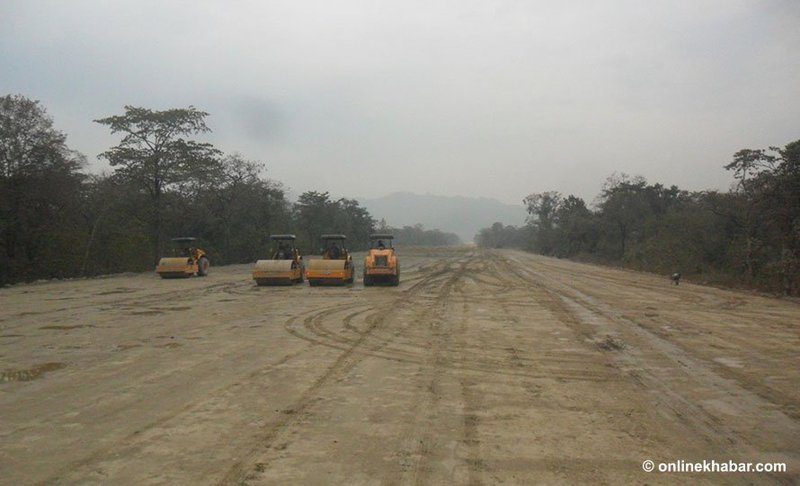
During his address at the fourth quarterly and annual progress review of the Ministry and its subordinate bodies for the fiscal year 2079-80 BS (2022-23) BS, the speaker emphasized that the Project was a top priority for the incumbent government.
The Council of Ministers resolved numerous obstructions regarding the Project in a single sitting, recognizing its importance.
He believed that the review should focus on identifying legal obstacles related to the projects and finding ways to overcome them.
During the meeting, it was reported that the Fast Track Project has made 25% progress in physical development and 28.11% progress in financial development.
The project is expected to be completed by March-April 2027 and is being overseen by the Nepali Army, which has divided it into 13 packages. The estimated cost of the project, including VAT, is Rs 175.12 billion. Evaluation of tender bids is underway for three packages, while two are undergoing revision of the Detailed Project Report.
The package related to Khokana is facing issues due to land acquisition problems.
The government has allocated Rs 22.50 billion for the project in the current fiscal year. The total cost so far is Rs 49.23 billion.
Last fiscal year, the Ministry achieved 97.59% of its financial targets and 97.91% of its physical targets.
Chief of Army Staff Prabhuram Sharma suggested gradually clearing legal and other obstacles for the expressway. He stated that the NA is capable of completing the project.
Deputy Prime Minister and Minister for Defense Purna Bahadur Khadka emphasized the need for support and cooperation from all parties to complete the Kathmandu-Tarai/Madhesh Fast Track Project within the given timeline.
During his address at the fourth quarterly and annual progress review of the Ministry and its subordinate bodies for the fiscal year 2079-80 BS (2022-23) BS, the speaker emphasized that the Project was a top priority for the incumbent government. The Council of Ministers resolved numerous obstructions regarding the Project in a single sitting, recognizing its importance.
He believed that the review should focus on identifying legal obstacles related to the projects and finding ways to overcome them.
During the meeting, it was reported that the Fast Track Project has made 25% progress in terms of physical development and 28.11% progress in terms of financial development.
The project is expected to be completed by March-April 2027 and is being overseen by the Nepali Army, which has divided it into 13 packages. The estimated cost of the project, including VAT, is Rs 175.12 billion. Evaluation of tender bids is underway for three packages, while two are undergoing revision of the Detailed Project Report.
The package related to Khokana is facing issues due to land acquisition problems.
The government has allocated Rs 22.50 billion for the project in the current fiscal year. The project has cost 49.23 billion so far.
Last fiscal year, the Ministry achieved 97.59% of its financial targets and 97.91% of its physical targets.
During the event, Chief of Army Staff Prabhuram Sharma suggested gradually clearing legal and other obstacles related to the expressway. He stated that the NA is capable of completing the project.
Various programs were organized to celebrate Mahashivratri and the 261st Anniversary of the establishment of the Nepali Army, recalling the glory of the institution, as in the past.
- TANAHU HYDROPOWER PROEJCT: A Significant Achievement
- Apr 15, 2024
- AMBASSADOR HANAN GODAR: Sharing Pain With A Nepali Family
- Mar 30, 2024
- VISIT OF KfW AND EIB TO NEPAL : Mission Matters
- Mar 25, 2024
- NEPAL BRITAIN SOCIETY: Pratima Pande's Leadership
- Mar 24, 2024
- JAJARKOT EARTHQUAKE: Waiting For Reconstruction
- Feb 28, 2024

